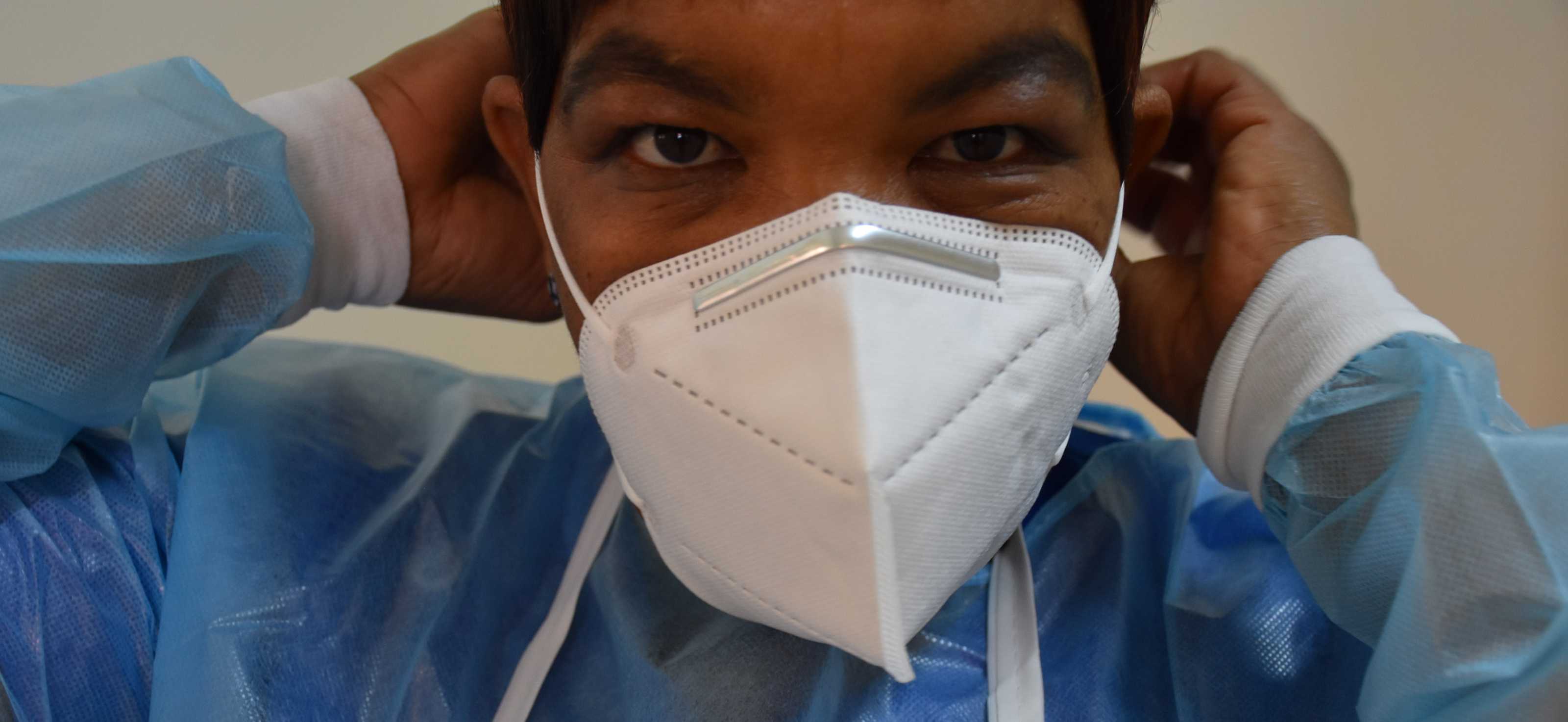As a front-line health care worker, Dr. Erica Koima (pictured above) has a first-hand account of what it’s like to see an overwhelming number of COVID-19 cases at her clinic near Nairobi, Kenya. She and her colleagues have worked tirelessly and put their own lives at stake to treat COVID-19 patients in droves – even though they have lacked the personal protective equipment they needed to keep themselves safe.
But these health care heroes can only do so much when they’re serving out of scarcity. “If you don't have the right equipment, you're demoralized and you don't want to work,” the pharmacist said.
Knowing that there was little hope of getting the protective equipment they need, Koima said several of her colleagues have left their work behind – not wanting to risk infection and possible death during the pandemic.
Serving the poorest communities during COVID-19 — and for 60 years
Mbagathi Hospital serves one of the poorest areas of Nairobi. It is a dynamic we’ve seen often in our 60-year history: the poorest areas that need help the most are the least likely to get it.
And the pandemic has only deepened this inequity throughout the world. While wealthier nations have been able to purchase PPE and vaccines to protect their populations, poorer countries, including Kenya, have lagged behind. The result is that the poorest communities, and those who serve in them, remain at greater risk, with no end to the pandemic in sight.
This is why Corus World Health exists. We believe basic health care is a human right, and we know the disadvantages remote and poorer communities face in accessing it.
That’s why we worked with Kenya’s Ministry of Health and Mbagathi Hospital’s staff to deliver two truckloads of masks, aprons, goggles and gloves to keep front-line health care workers in one of the world’s poorest communities safe. Because a world where health workers have to wash and reuse their gloves and masks is a world that needs to change.
The trucks arrived just in time. Staff had been gearing up to open a 100-bed isolation tent and a 10-bed intensive care unit to handle the third wave of COVID-19 cases sweeping through the slums around the hospital.
“The health care industry is overwhelmed with COVID cases,” Dr. Koima said. “COVID will be here for a while, it's not going away as fast as we thought, so we think it's necessary to have an isolation center in place."
Equipping health care heroes to save lives
Dr. Koima says that now that PPE is available, her colleagues are staying — ready to attend to patients and continue the fight against the spread of the COVID-19.
“We are so grateful for their [Corus World Health] thoughts. I can't express my happiness as a health care worker. You see once you're equipped for the war, you're ready to work,” she said.
Your partnership with Corus World Health means you get to restore hope to front-line health care workers who risk their lives daily to help those who need it most.

